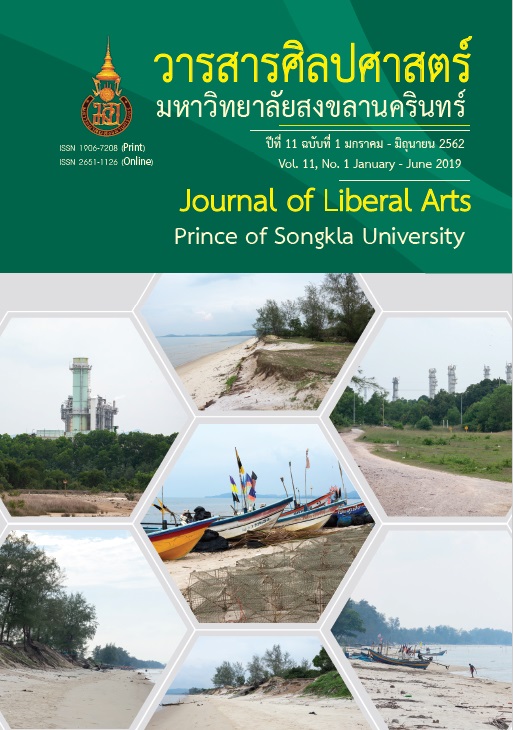The principal political culture of people in Ban Kham sub-district administrative area, Nam Phong District, Khon Kaen Province
Keywords:
Political culture, democratic political culture, civic cultureAbstract
This article argued that one way of measuring whether democracy is of the lasting sort is to determine whether a democratic political culture has developed. It is often mistakenly assumed that to have democratic institutions in place or to conduct regular free and fair elections is tantamount to a mature democracy. Since democratic political culture is the founding of government and essential of democracy stability, the purpose of this research project is to study the principal political culture of local people in villages in the Northeast. A qualitative research method was used to collect and analyze data obtained from target areas; a total number of 38 subjects were interviewed. The research findings indicated that the principal distinctive political cultures in the communities could be divided into three categories: 1) apathy which is fostered by the majority who shows ignorance, apathy, a lack of interest and do not give importance to political or current issues, 2) detached and aloof refers to people who are quite introvert and prefer not to attach to or involve in any activity with the community, and 3) participants refer to a group of people with interest in political participation who are aware of political policies, are able to discuss political issues, and involve in various types of political participation. We recommend that if Thai society wishes to establish true democracy, it is essential to install in the society democratic political culture.
References
Huntington, S. P. (1969). Political order in changing societies. (2nd ed.). Connecticut: Yale University Press.
Lasswell, H. D. and Kaplan, A. (1950). Power and society: A framework for political inquiry. New York: University Press.
Macedo, S. (2002). Liberal virtues: citizenship, virtue, and community in liberal constitutionalism. Oxford: Clarendon Press.
Nash, K. (2010). Contemporary political sociology: Globalization politics and power. (2nd ed.). Oxford: Wiley – Blackwell.
Promgird, P. (2013). Political sociology. (2nd ed.). Khon Kaen: Khon Kaen University Printing. [in Thai]
Promgird, P. (2014i). People’s political culture and the development of democracy. Royal Thai Navy Academy Journal, (Auspicious Issue), 83 - 91.
Promgird, P. (2014ii). Development of democracy and democratic political culture. Rattasapasarn Journal, 62 (7), pp. 9 - 44.
Rujanaseree, P. (2008). Culture revolution. Bangkok: Prachamati Party. [in Thai]
Chumpol, P. (1995). The study of political culture in Thai society and the sustention of democracy: Some considerations. Social Sciences Journal, 28(2), 15-30. [in Thai]
Pye, L. W. (2000). Democracy and its enemies. in James F. Holifield & Calvin Jillson. (Eds). Pathway to democracy: The political economy of democratic Transitions. New York: Routledge.
Nakata, T. (2000). Democracy. (2nd ed.). Bangkok: Sahai Black and Printing. [in Thai]
Nakata, T. (2003). New generation’s political culture. Bangkok: Sahai Black and Printing. [in Thai]
Sirikrai, S. (2007). Development of democracy without political cultural and moral change. In seminar supplemental document on “Political Culture, Morality, and Governance”. 8 – 10 November 2007 at United Nation Convention Center, Bangkok. (pp. 87-124). Bangkok: King Prajadhipok's Institute. [in Thai]
Tanasatit, U. (2016). Democratic political culture. Retrieved on 25th April, 2016, from: http://kpi.ac.th/media/pdf/M7_158.pdf. [in Thai]
Downloads
Published
How to Cite
Issue
Section
License
The authors retain the copyright to their article but the Journal of Liberal Arts, Prince of Songkla University reserves the exclusive rights to first publication.






